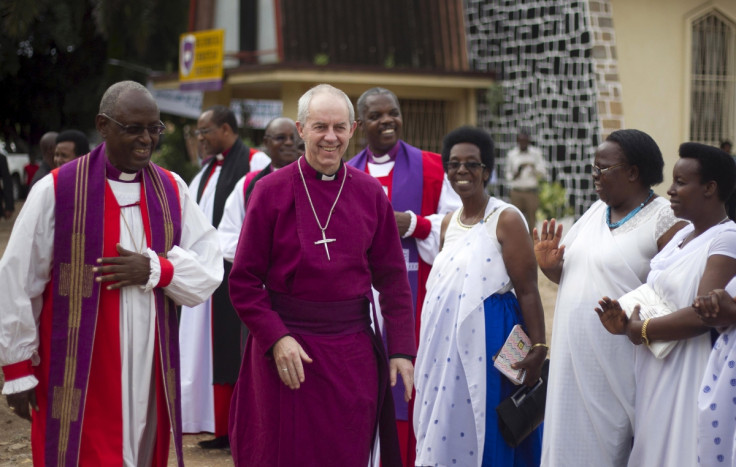Burundi: Archbishop of Canterbury visit criticised amid calls to 'forgive'

A number of Burundians have criticised the Archbishop of Canterbury's peacebuilding visit to the troubled nation, claiming the cleric should "stay out of Burundian affairs".
The crisis that has killed up to 900 people in the country pits supporters of President Pierre Nkurunziza against those who say that his re-election in July 2015 for a third term violated the constitution. After a failed coup in May, the government intensified its crackdown and most of those arrested or missing are young men and women accused of participating in or supporting opposition groups.
The Archbishop Justin Welby concluded his three-day visit to Burundi on Sunday (6 March) after he met Nkurunziza and government leaders.Talks focused on the need for reconciliation, in order to avoid a new civil war.
While Alain Nyamitwe, Burundi's Minister of External Relations and International Cooperation, said the visit had given the government "faith to overcome challenges", a number of Burundians took to social media to vent their discontent.
"I don't like seeing whites in Blacks affairs. They are not good – even the churches men," user Cleo Kemet, for example, tweeted on Monday (7 March).
"Take this white guy out of our affairs! Burundi. Is He African?"
These comments come amid growing claims of international interference.
Last month, Rwanda announced its plans to relocate Burundian refugees to other countries days after being accused of attempts to destabilise its neighbour. Following the discovery of a mass grave near Burundi's capital last week, the ruling CNDD-FDD party accused foreign journalists of covering up its macabre existence and threatened them with legal action.
'Secure a lasting peace and stability in Burundi'
"We make this solidarity visit to the Republic of Burundi to express our commitment to work with all religious leaders and all peace-seeking people of Burundi and to support their tireless efforts on the ground to secure a lasting peace and stability in Burundi," the World Council of Churches general secretary, Reverend Olav Fykse Tveit, said about the visit.
"We want to express our great concern over the current escalation of tensions and violence in the country following the recent election. As representatives of the ecumenical family, we pray for peace to prevail in Burundi."
Speaking about the conflict in the country, Welby told BBC: "We have to recognise always that people fail and do the wrong things. Attacks on people and violence, they happen all over the world, they're wrong, whoever does them and in whatever the circumstances.
"It is the call of the Church to stand clearly for reconciliation, and to call people together, to see each other as human beings, not to demonise their enemies but to love their enemies as Jesus did, and to find ways of building a common future."
The Archbishop said they wished to "renew the sense that Burundi is a country which many people love and that they are never forgotten – they are never far from our hearts.
"As Christians, we come always carrying the message of reconciliation. And so we come to pray for that reconciliation, and with the leaders of the Church here."
The Anglican Church of Burundi is "not by any means the biggest church" in the country "but it is an influential Church," he said.
"It's part of the Anglican Communion, which is the third biggest of the global churches, with 85 million Christians around the world. Archbishop Bernard [Ntahoturi] and his colleagues are loved and prayed for and respected all the way round the world, and the Church can be part of the solution and will be part of the solution and is part of the solution."
Speaking about the conflict in the country, he said: "We have to recognise always that people fail and do the wrong things. Attacks on people and violence, they happen all over the world, they're wrong, whoever does them and in whatever the circumstances. It is the call of the Church to stand clearly for reconciliation, and to call people together, to see each other as human beings, not to demonise their enemies but to love their enemies as Jesus did, and to find ways of building a common future. Not necessarily agreeing – people will always disagree, that's the nature of human life and political life – and disagreement is fine, but all of us need to learn to disagree in a way that enables human beings to flourish and to live in safety."
© Copyright IBTimes 2025. All rights reserved.





















